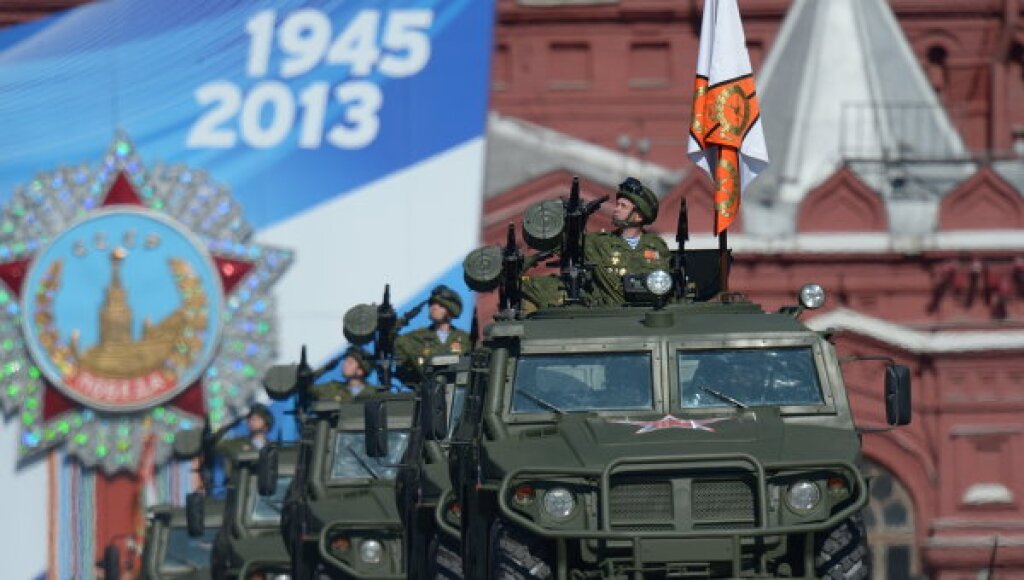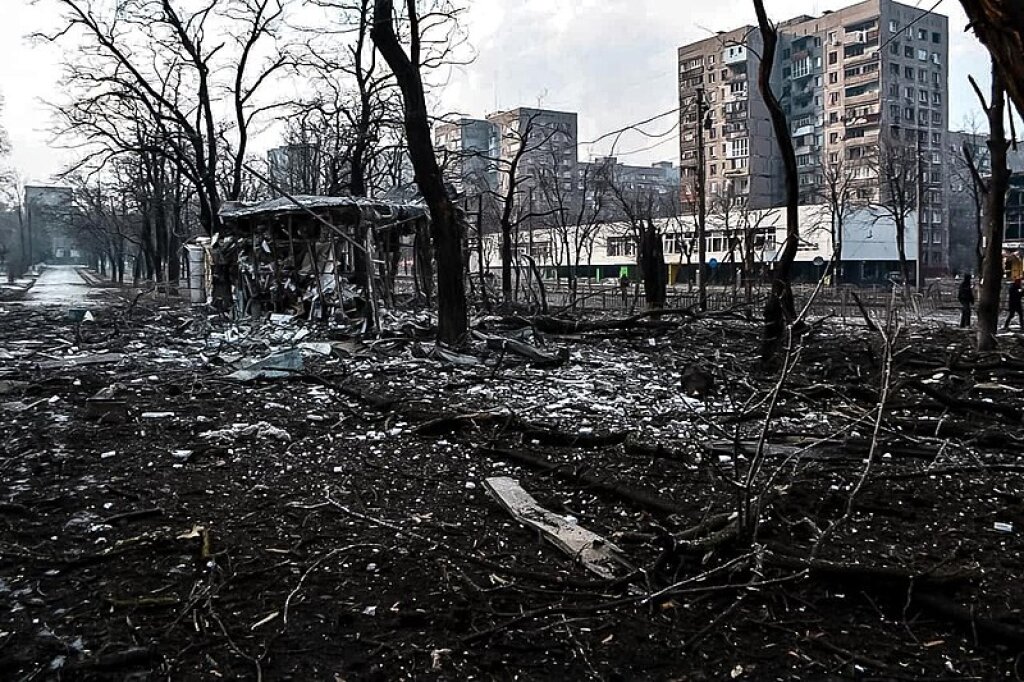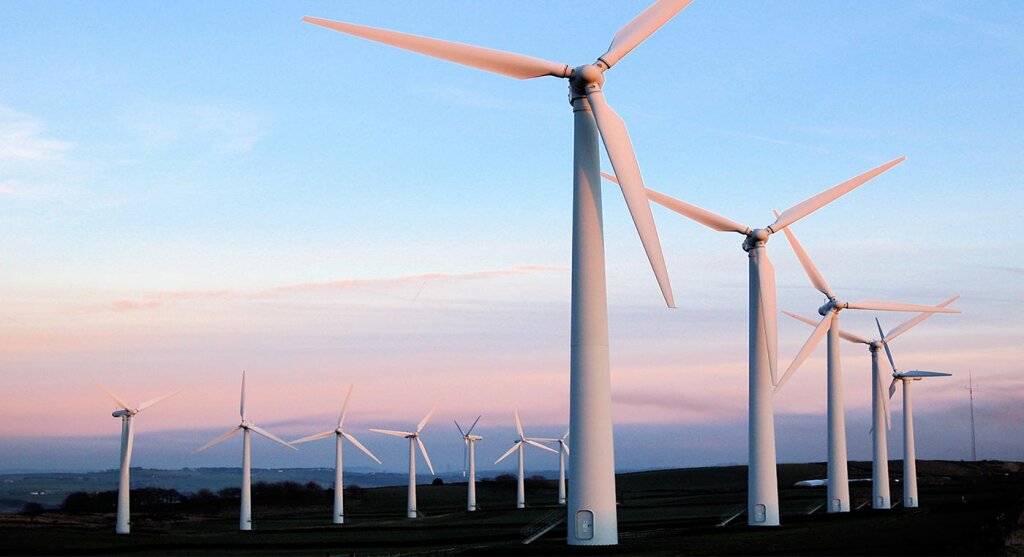As I write this, Moscow is clearing up after the latest Great Patriotic War nostalgia-fest. The Victory Day parade is a chance to remember past glories, drink, wear a pilotka and, for those of us disposed to that kind of thing, ooh and aah at the squat-turreted tanks and phallic missiles clanking and clattering their way through the city.
It is also a regular opportunity by the Kremlin to restate and redefine its own narrative, of an heroic people unified against an external force by and around a powerful leader. Now, of course Putin is no Stalinist (after all, he told us so), but nonetheless in a time when the state is busily trying to characterize liberal NGOs as “Foreign Agents” and ultra-leftist Sergei Udaltsov a Georgian agent, then there to a considerable extent this narrative is again coming to the fore.
However, this is by no means uncontested and one of the interesting current developments is the way that the opposition, especially that wing of it dominated by Alexei Navalny, for all its evident divisions and weaknesses, does seem to be beginning to have a genuine impact on national conversations. After all—and this is something which emerged from discussions I had with RFE/RL’s Brian Whitmore and Kirill Kobrin, and Sean Guillory from the University of Pittsburgh in a recent RFE/RL Power Vertical podcast—the political struggle taking place within Russia is in no way a conventional organizational one. Navalny is much more than the “anti-corruption blogger” as he is often described, but he is not (yet?) a leader of a coherent movement. There is no rival to Putin and the United Russia bloc within the regular electoral context.
Instead, what is taking place is an asymmetric struggle by a range of actors to define, to brand themselves and their rivals and in the process Russia itself. This kind of memetic (as in relating to memes, ideas that spread from person to person) is one in which creativity and passion can be — almost — as effective as the size of a propaganda machine. And, of course, it happens to be an area in which the liberal middle class opposition have demonstrated considerable skill, especially arch mememeister Navalny.
A particularly good index of this has been a recent Levada opinion survey, also somewhat covered in the Russian press, about attitudes to United Russia, Putin and the elite in particular. I reproduce them below, although in some cases I have eliminated some columns, especially of earlier samples, in the interests of space. This must be pretty uncomfortable reading in the Kremlin.
WITH WHICH THESE STATEMENTS ABOUT THE PEOPLE WHO ARE IN POWER NOW DO YOU AGREE?
| These are people who... | 2/06 | 3/10 | 1/12 | 8/12 | 4/13 |
|---|---|---|---|---|---|
| care about the welfare of the people | 10 | 12 | 19 | 14 | 10 |
| are concerned only with their privileges and income | 56 | 40 | 37 | 33 | 41 |
| are educated, knowledgeable professionals | 15 | 22 | 22 | 25 | 18 |
| are organizers and practitioners, able to work with people | 12 | 14 | 15 | 14 | 12 |
| are convinced ideologists | 6 | 10 | 9 | 7 | 6 |
| are advocates of the ‘pre-perestroika’ (Soviet) order | 3 | 2 | 2 | 2 | 2 |
| are concerned with the government itself | 43 | 27 | 34 | 32 | 34 |
| Other | 1 | 1 | <1 | 1 | 1 |
| Hard to tell | 6 | 10 | 11 | 12 | 9 |
TO WHICH OF THE FOLLOWING STATEMENTS ON CORRUPTION IN RUSSIA DO YOU AGREE?
| 3/12 | 11/12 | 4/13 | |
|---|---|---|---|
| Putin will be able to succeed in the fight against corruption, purging the ranks of top officials and toughening the punishment for such crimes | 27 | 27 | 20 |
| Putin will try to fight against corruption, but he is unlikely to make significant progress because it is deep-rooted in Russia | 35 | 35 | 35 |
| Putin will find it hard to fight corruption, as he himself is largely dependent on corrupt officials | 15 | 21 | 21 |
| Putin will not seriously try to fight against corruption, as he is in some way involved | 15 | 12 | 17 |
| Do not know | 6 | 6 | 7 |
WHAT, IN YOUR OPINION, IS MORE IMPORTANT TO THE PEOPLE WHO NOW HOLD POWER IN RUSSIA?
| The prosperity of the country | 26 |
|---|---|
| To maintain and strengthen their own power | 62 |
| Hard to tell | 12 |
DO YOU THINK THAT PUTIN IS NOW MORE INTERESTED IN THE STATE OF THE COUNTRY OF HIS OWN INTERESTS?
| 1/05 | 1/07 | 1/08 | 1/12 | 4/13 | |
|---|---|---|---|---|---|
| The country’s problems | 31 | 48 | 56 | 40 | 33 |
| His personal financial interests | 55 | 36 | 29 | 41 | 52 |
| Hard to tell | 14 | 16 | 16 | 19 | 16 |
DO YOU BELIEVE THAT THE INCOME DECLARATIONS OF SENIOR GOVERNMENT OFFICIALS, MEMBERS OF THE FEDERATION COUNCIL AND STATE DUMA DEPUTIES REPRESENT ALL THEIR AVAILABLE INCOME AND PROPERTY TAXES OR ONLY PART OF THEM?
| 4/10 | 4/11 | 4/12 | 4/13 | |
|---|---|---|---|---|
| All | 2 | 1 | 2 | 3 |
| Most | 10 | 11 | 13 | 15 |
| Minority | 44 | 43 | 38 | 43 |
| Infinitesimal part | 34 | 34 | 32 | 28 |
| Hard to tell | 10 | 11 | 15 | 11 |
WHY DO YOU THINK THE RICHEST STATE DUMA DEPUTIES BELONG TO THE “UNITED RUSSIA” BLOC?
| Because “United Russia” unites and protects the interests of the rich | 31 |
|---|---|
| Because the administrative resources of “United Russia” open up opportunities for rapid enrichment | 44 |
| This is a historical process | 15 |
| Hard to tell | 10 |
DO YOU AGREE OR DISAGREE WITH THE VIEW THAT “UNITED RUSSIA” IS THE PARTY OF CROOKS AND THIEVES?
| 2/12 | 6/12 | 8/12 | 9/12 | 11/12 | 2/13 | 4/13 | |
|---|---|---|---|---|---|---|---|
| Definitely yes | 15 | 17 | 15 | 13 | 13 | 16 | 18 |
| Probably yes | 21 | 24 | 30 | 25 | 25 | 24 | 33 |
| Probably not | 30 | 28 | 30 | 27 | 26 | 27 | 24 |
| Definitely not | 17 | 12 | 12 | 17 | 14 | 14 | 9 |
| Hard to tell | 17 | 19 | 13 | 19 | 22 | 18 | 16 |
Take, for example, the last, specific point about UR being the “Party of Crooks and Thieves”–something which was, after all, Navalny’s inspired “PZhiV” memetic salvo. Over half, 51%, of respondents definitely or generally agree. Remember, that 51% should not also be considered devoted Navalny groupies (most have not heard of him, and of those who have, most express dislike or mistrust of him), but nonetheless his meme has spread well beyond his own circle, and it is also supported by those separate indices that see United Russia as the rich man’s (or woman’s) home and the elite habitually understating their true incomes.
The steady rise of the PZiV meme
So let’s summarize the poll’s findings. Most respondents (51%) broadly or completely agree that United Russia is a bunch of crooks, the largest proportion (41%) consider the elite wholly self-interested and almost two-thirds (62%) believe they will rule in their own interests. A clear majority (71%) believe they substantially deceive the public about their real incomes. Putin himself (52%) is primarily motivated by his own rather than the country’s interests, and (73%) will be unable or unwilling seriously to fight corruption within the system.
This must be discouraging reading for the Kremlin. However, it is only a partial boon for the opposition. After all, while more and more Russians have heard of Navalny, Levada polls also suggest that his popularity amongst them is actually falling. It is likely not so much that former supporters are changing their minds, rather than those who now known who he is have internalized the government’s efforts to smear him.
The sad and worrying thing about the present struggle for the hearts and minds of Russia, though, is that it is pretty much entirely negative. Navalny is presenting the elite as self-serving and corrupt; the Kremlin is trying to do the same to him. How long will it be before anyone is able to start presenting some positive visions for Russia’s future? Meanwhile, the Great Memetic War in Russia is looking more like a Siege of Leningrad, a slow, brutal, grinding battle of attrition…
An earlier, shorter version of this post appeared on Mark’s own blog, In Moscow’s Shadows.



